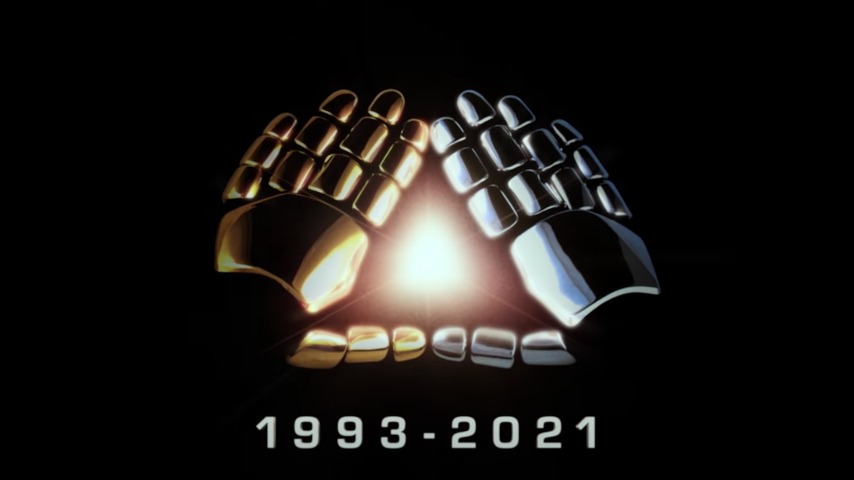When news hit on Sunday that Low’s Mimi Parker had passed away in the night after a long battle with ovarian cancer at the age of 55, going through the motions of turning back the clock for Daylight Savings seemed more symbolic than ever. Rather than a meaningless gesture, it felt like the world had hiccuped into a disorienting state of confusion and had actually lost something more meaningful than an hour of light.
For the last 30 years, the band she started with her husband Alan Sparhawk in Duluth, Minnesota, found power within space and simplicity. Low held the spectral middle ground between The Staples Singers’ gut-level gospel and the rock and roll auto-mechanic manual passed on by The Velvet Underground. Underneath Sparhawk’s open-tuned guitar and sorrowful croon, Parker’s propulsive and minimalistic drumming and soprano harmonies provided an anchor that never dragged.
Their first few albums are heralded as influential documents in the rise of the “slowcore” movement, which featured other quiet and slow-simmer groups such as Red House Painters and Codeine. Like Fugazi growing out of the post-hardcore movement they helped spawn, Low were never held back by the trappings of slowcore. As with Fugazi, Parker and Sparhawk’s band continually pushed the boundaries of what they could achieve in their compact form—Low performed mostly as a three-piece, enlisting many different bassists and multi-instrumentalists over the years. They were also a rare case of a band who only got better and more interesting with each release.
The band’s discography is overflowing with classics that solidified their skeletal, “less is more” power. They worked with producer Steve Albini on 1998’s Secret Name and, perhaps the defining record of their early period, 2001’s transcendent Things We Lost In The Fire. They would move from the independent labels Vernon Yard to Kranky, before finally landing on their final home of Sub Pop. Low would surprise fans with evolutions to their sound through the years, working with producers like David Fridmann and Wilco’s Jeff Tweedy. But once they linked up with fellow Minnesotan and Bon Iver collaborator BJ Burton on 2015’s Ones and Sixes, they embraced crushing waves of distortion and electronic manipulation that only progressed with their final two releases—2018’s Double Negative and last year’s HEY WHAT. As it’s nearly impossible to think of Low without Parker’s irreplaceable presence, these releases will soon go down as some of the great final albums by any artist of any genre.
As Low’s sound became more adventurous, they never lost sight of their ace in the hole: Sparhawk and Parker’s paralyzingly beautiful harmonies. Seen live, they were just as room-silencing a phenomenon as droning riffs from a wall of Orange amplifiers. But on the songs that Parker would sing front and center, her strong and emotive voice had the command to hush glass bottles being thrown into bins at the back of the bar.
Perfect examples of her voice’s captivating effect are the Things We Lost In The Fire guitar-and-voice standout “Laser Beam” and “Especially Me” from the 2011 album C’mon—the latter featuring a standout demonstration of her understated brilliance behind the drumkit.
Playing on a stripped-down drum kit that only included a floor tom, snare and cymbals, Parker never overplayed, but was consistently overpowering, crafting the pulsing heartbeat that grounded Low’s delicate world.
As touring musicians and parents, Parker and Sparhawk assured independent musicians that you could have some semblance of a family life while on the road—as evidenced in the 2008 documentary You May Need a Murderer. Motherhood was always at the core of Parker’s musicality. Her grounding rhythms and angelic voice resonated with a sense of comfort and assurance that filled countless clubs across the globe, and snapped uninitiated and unfamiliar festival-goers into moments of deep contemplation.
The two were very open about their Mormon faith, and were a prime example that it’s possible to make faith-based music that never presents itself as a sales pitch. Rather than aiming to shame or convert, they sung of those moments of doubt while reckoning with a great and unknowable power. Their songs were hymns for the quietly conflicted. It’s what makes their name as perfect as it is. Low’s music meets you at your lowest depths, but never lets you fall further. It’s comforting music that lets you know that it is possible to get out of the well you have fallen into, with Parker and Sparhawk lending you a hand to help you climb out.
On the band’s 1994 debut I Could Live In Hope, Parker encapsulated all of these reassurances in the glacially paced epic “Lullaby.” Listening back and reading the words that she sang on it, this track now seems like a new constellation in the sky with her absence:
Cross over and turn
Feel the spot, don’t let it burn
We all want, we all yearn
Be soft, don’t be stern
Lullaby
Was not supposed to make you cry
I sang the words I meant
I sang
In moments like this, we could point you to a curated playlist of some of Parker’s finest moments in Low to give you a primer on where to start. But given the state of healthcare in our country and the struggles of independent musicians, we will forgo that and point you instead towards the band’s Bandcamp page, where you can purchase items that may help keep Sparhawk and their two children, Hollis and Cyrus, afloat during this trying time. Low are a band who have never disappointed with a release, so any choice you make, you won’t regret. This is not only a time that we should be celebrating the work of a once-in-a-generation artist, but also one where we should be returning the favor with our support. Having Parker’s music in your life will only change you for the better.
“I need your grace,” Parker once sang. The world is now more full of it with the immortal body of song she has left behind.
Pat King is a Philadelphia-based journalist and host of the In Conversation podcast at Ears to Feed. He releases his own music with his project Labrador and is a tireless show-goer and rock doc fanatic. He recently took up long-distance running, which he will not shut up about. You can follow him at @MrPatKing.
Revisit a 2012 Low performance from the Paste archives below.




